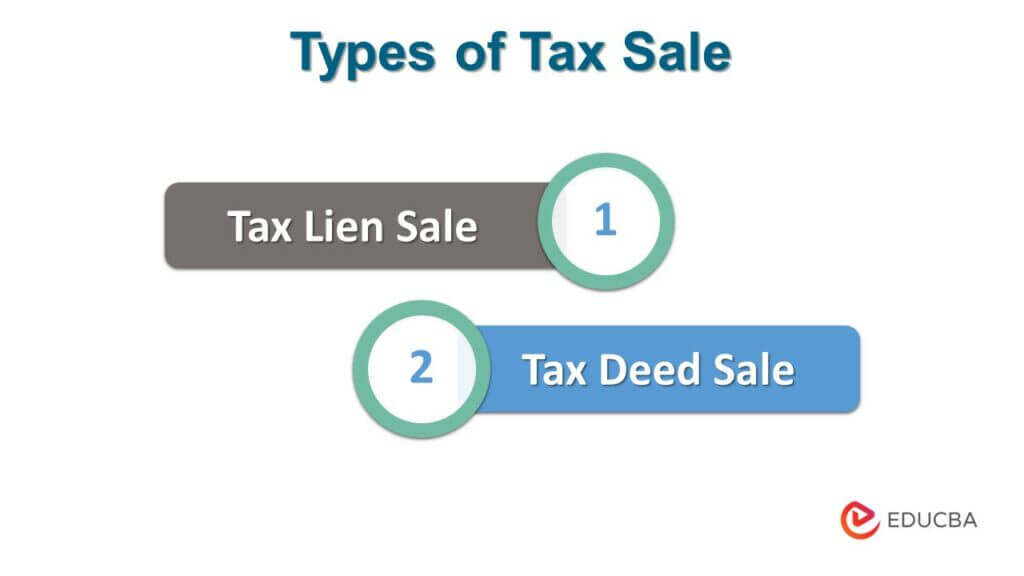Updated July 24, 2023
Definition of Tax Sale
Tax Sale is a term used in the real estate sector, wherein a real estate property is sold out by the government authorities when the property tax remains unpaid.
Thus, when the property’s tax levied is not paid by the owner, the government authorities sell the said property by way of auction or other means.
How Does Tax Sale Work?
Well, when you don’t pay the property taxes, it is not that the authorities will auction your property right away. You will be informed about your failure to pay the taxes and will be allowed to pay the pending taxes along with interest within a particular period of time, known as the redemption period. Thus, you will have an opportunity in hand to pay the dues of taxes and claim back your property under question. However, if you fail to clear the tax dues, the government authorities will become empowered to sell out your property, owing to non-payment of tax dues, by way of auction or otherwise. The authorities will utilize the sales proceed to recover the pending dues.
Types of Tax Sale
There are two kinds of tax sales in the event of non-payment of tax dues, namely tax lien sale and tax deed sale.
1. Tax Lien Sale
In this kind of tax sale, the government does not sell the property itself. Instead, it transfers the lien on the property to the highest bidder in the auction. Lien gives the investor a right to collect the amount of due taxes, interest, and costs relevant to the sale of the property. The investor can foreclose the property (i.e. acquire the property in their own name or transfer the title to the third party) only after the redemption period is over, which is a minimum period for which the investor shall wait before he decides to foreclose the property. During the redemption period, the property’s actual owner may pay the investor the amount of lien along with interest and other charges.
2. Tax Deed Sale
In this type, the property under consideration is sold itself by the authorities to the person making the highest bid. The bid amount should al-least be equal to the pending tax dues, interest, and auction-related costs. Depending on the state’s laws, the amount recovered in excess may or may not be paid to the property owner.
Example of Tax Sale
Let us consider an example of Mr. Alpha, who owns a property in the USA and owes $4,000 in respect of property taxes to the state. The said amount is unpaid for a period of two years. In such a case, the government may issue a notice to Mr. Alpha to clear the dues along with applicable interest, failing which his property might be offered for sale under Tax Sale by the government.
Tax Sale vs Sheriff Sale
It is the sale of the property by the government authorities on account of the non-payment of property taxes by the owner of the property. The authorities recover the amount due to the realization on account of the auction.
On the other hand, Sheriff Sale is the case where the owner of the property is unable to make the payments related to the debt mortgage. In such an event, the property’s ownership is repossessed by the lender, who then sells the property to the general public to recover the amount with respect to debt.
Advantages and Disadvantages
Below are the advantages and disadvantages mentioned:
Advantages
Buying a property under tax sale offers the following benefits to the investor.
- The investor is able to procure the title to the property at a very good rate which may be lower than the market rate of the property itself.
- In case of a tax lien sale, the investor earns interest during the redemption period since the government authority assigns fixed interest rates for the lien certificate, at which the taxpayer shall give interest to the holder of the certificate.
Disadvantages
Some of the disadvantages are:
- Before you invest properties under tax sales, make sure you carry out an intense title search. There may be liens outstanding against the property, which the owner needs to clear before having a clear title to the property.
- It is important to check the health of the property before the bid is placed for the property; otherwise, you may end up placing a bid more than the fair value. You might have to spend on repairs in such a case if the property is not well maintained.
Conclusion
Thus, investing in real estate through Tax Sales is although a good investment option since it enables the investor to obtain the property at lower rates. However, one needs to analyze the history of liens on the property and the property’s condition before one makes a bid.
Recommended Articles
This is a guide to Tax Sales. Here we discuss the tax sale types and the difference between tax sale vs sheriff sale and the advantages and disadvantages. You may also look at the following articles to learn more –



